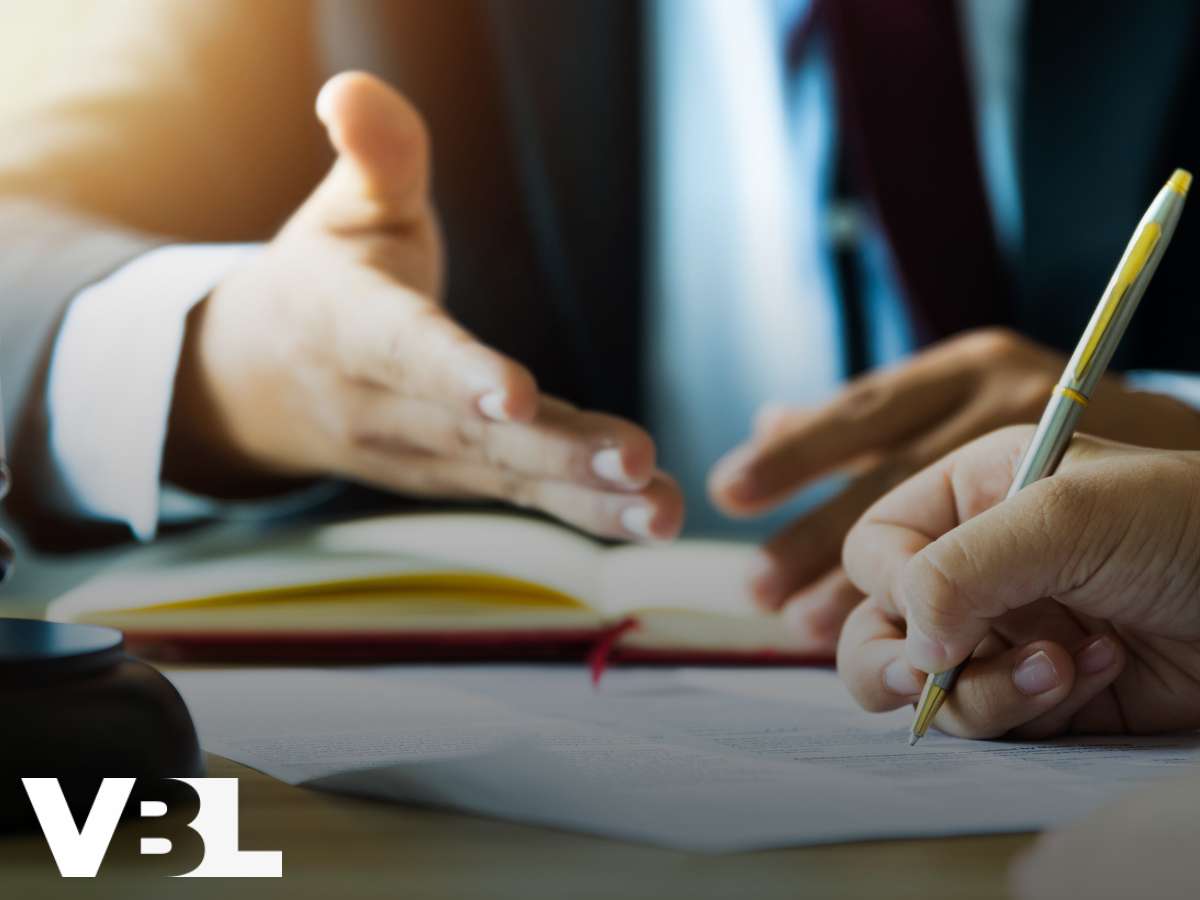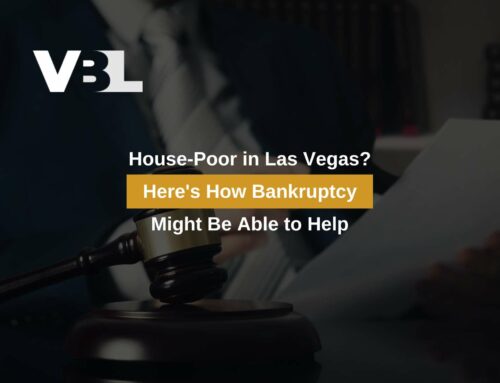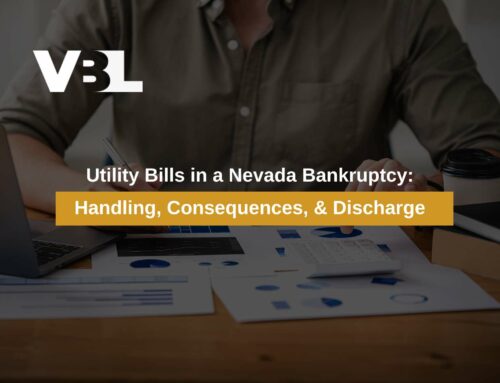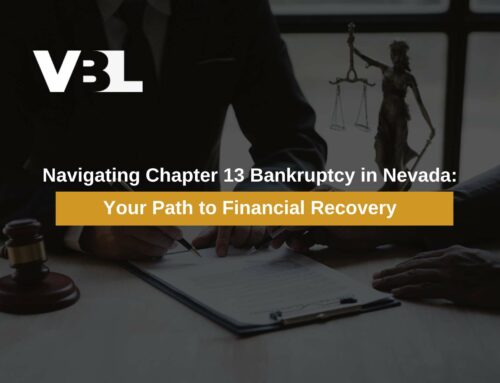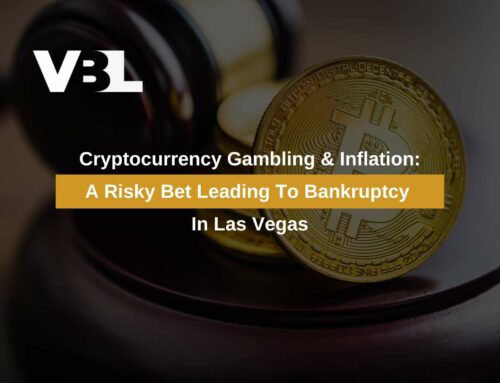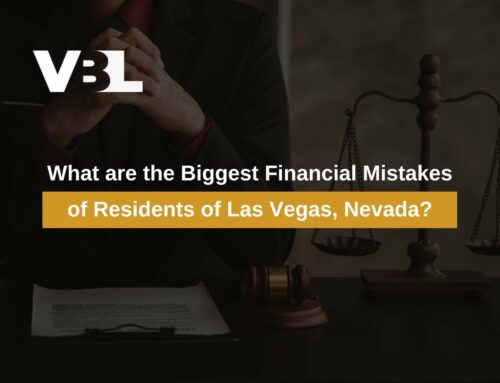Can I File Bankruptcy In Nevada If I Have SBA Loans?
Nevada was one of the states hit hardest, at least economically, by the COVID-19 pandemic. Thankfully, many Nevadans who lost income due to the pandemic were able to benefit from provisions set forth by the CARES Act of 2020. There were stimulus payments available to those who met certain income limitations, as well as increased unemployment benefits for those who lost their jobs. But these types of provisions may not be as useful for small business owners, who represent a large percentage of employed individuals in Nevada and the United States in general. Small business owners affected by the pandemic had the option to apply for PPP and EIDL loans to help keep their businesses in operation and their employees paid. But the pandemic also largely changed how the world operates, and some businesses simply weren’t able or won’t be able to recover. This puts the business owner in the difficult position of deciding whether or not to declare bankruptcy. Our experienced Las Vegas bankruptcy attorneys can help you with that decision, and along every step of the process. To get started with your free consultation, call 702-370-0155.
Pandemic Assistance Loans For Small Businesses
The two main types of loans used by small business owners during the pandemic were PPP loans and EIDL loans. PPP loans are from the Paycheck Protection Program. They are meant to be used for maintaining payroll and other operating expenses. PPP loans came with a fixed interest rate of 1%, but they were also forgivable for many borrowers. They also didn’t require collateral, as some EIDL loans do. For the most part, a business needed to have less than 500 employees to qualify as a small business for PPP loan purposes. This also allowed sole proprietorships, gig workers, independent contractors, and other self-employed people to take advantage of COVID-19 relief. The business had to have been started before February 15, 2020, to qualify for PPP loans. For the second round of PPP loans, the business must have had less than 300 employees and been able to prove a decrease in revenue of at least 25% for at least one quarter in 2020. If the business owner can’t provide profit and loss statements, tax returns, or other proof of such reduced revenue, the PPP loans can’t be forgiven.
There were a few requirements PPP loan borrowers had to meet to qualify for loan forgiveness. There was a period between 8 and 24 weeks after the loan was disbursed known as the “covered period.” During the covered period, the business must have maintained the same amount of employees and staffing. While it would be difficult, this did allow businesses to fire employees during that time period if they replaced them with the same salary costs. The business owner must be able to prove that the funds from the PPP loan were used towards business operating expenses, with at least 60% of that specifically being towards payroll. Forgiveness must have been requested before the loan matured. For PPP loans issued before June 5, 2020, the maturation period was 2 years. For PPP loans issued after that date, the maturation period is 5 years. That means that the deadline for loans issued before June 5, 2020, has already passed.
EIDLs, or Economic Injury Disaster Loans, can only be issued when a business owner is in a physical area impacted by a widespread disaster. EIDL loans have a fixed interest rate of 3.75% for businesses and 2.75% for nonprofits. These loans are payable for up to 30 years. EIDLs from the pandemic could be used for operating costs, payroll, business debts, and other operating expenses. EIDL loans don’t come with all of the benefits of PPP loans. First of all, they come with a slightly higher interest rate. Secondly, PPP loans offer forgiveness while EIDLs do not. Third, many EIDLs require collateral from the borrower.
EIDLs don’t require collateral if they are less than $25,000. Once they reach the $25,000 mark, the borrower must pay $100 to file a lien on business assets equivalent to the loan. If the loan is more than $500,000, the borrower must pay that same $100 fee to place a lien on their primary residence as collateral for the loan. A personal guarantee must be made for loans of more than $250,000. Payments were deferred for the first 2 years with the loan term being 30 years. If the borrower can’t make payments once the deferment period ends, they can request a financial hardship deferment of 6 months.
Will PPP & EIDL Loans Be Discharged by Chapter 7 Bankruptcy?
Some PPP loan borrowers may have not met the loan forgiveness requirements or missed the deadline to apply. If the borrower can’t pay back the loan, Chapter 7 bankruptcy may be an option. One main consideration of filing Chapter 7 bankruptcy as a small business owner is that the business will need to shut down. This will impact different types of businesses differently. If a business is run with very few assets, it is easy enough for the bankruptcy debtor to open up a new business in a different name. Businesses with more expensive supplies, or even owned property, will have a harder time utilizing Chapter 7 bankruptcy in this way.
EIDLs aren’t as easy to discharge in Chapter 7 bankruptcy as PPP loans. PPP loans are unsecured debts, making them similar to personal loans, credit cards, and medical debts. However, only EIDLs of less than $25,000 are unsecured. Filing Chapter 7 bankruptcy doesn’t extinguish liens or discharge secured debts. EIDLs with business assets or a primary residence attached as collateral are secured debts. Note that an EIDL of less than $25,000 doesn’t require collateral, which would make it an unsecured debt and dischargeable in Chapter 7 bankruptcy. A lien from an EIDL will remain unscathed by a Chapter 7 bankruptcy, which will leave the debtor unable to sell or transfer that asset until paying off the loan. Typically, this would leave the debtor with the option of paying off the lien in Chapter 13 bankruptcy. However, many types of businesses aren’t eligible to use Chapter 13 bankruptcy. To learn more, schedule your free consultation at 702-370-0155.
SBA Loans & Chapter 13 Bankruptcy
Discharging SBA loans in Chapter 13 bankruptcy will be trickier for many businesses. Only sole proprietors can use Chapter 13 bankruptcy to discharge debts. If a business owner does qualify to use Chapter 13 bankruptcy, the payment plan will last either 3 or 5 years and pay off debts categorized into four types. Secured debts, like liens from EIDLs, are the second type of debt paid off in a Chapter 13 bankruptcy. Unsecured debts, like PPP loans and EIDLs of less than $25,000, are unsecured debts, which are the fourth category of debt paid in Chapter 13 payment plans. The fourth category of debts are only paid off to the extent that the debtor’s disposable monthly income allows. Talk to a bankruptcy attorney for more information about Chapter 13 payment plans by calling to schedule your free consultation at 702-370-0155.
Nevada Bankruptcy Attorneys With Years Of Experience & Affordable Rates
One of the biggest barriers for many people to file bankruptcy is, ironically enough, the cost. Las Vegas Bankruptcy Lawyers understands the financial struggles our clients face, and therefore offers competitive rates with payment plans that don’t start until after your case has been filed. We help our clients proceed through bankruptcy as quickly and efficiently as possible without the hiccups and obstacles that self-represented debtors may face. There is no risk in consulting with one of our bankruptcy professionals to see if bankruptcy is right for you and if we’re the right firm for your case. Get started today by scheduling your free phone consultation at 702-370-0155.
Las Vegas Bankruptcy Lawyers
LAS VEGAS
7251 W Lake Mead BLVD #300
Las Vegas, NV89128
Office: 702-879-2499
Email: [email protected]
HENDERSON
1489 W Warm Springs Rd. Ste 110
Henderson, NV 89014
Email: [email protected]
Additional Information at:
Phoenix Bankruptcy Lawyer
Phoenix DUI Lawyer
Chandler Bankruptcy Lawyer
Vegas Zero Down Bankruptcy Attorney
Gilbert Bankruptcy Lawyers
Arizona Zero Down DUI
AZ Bankruptcy Lawyer





